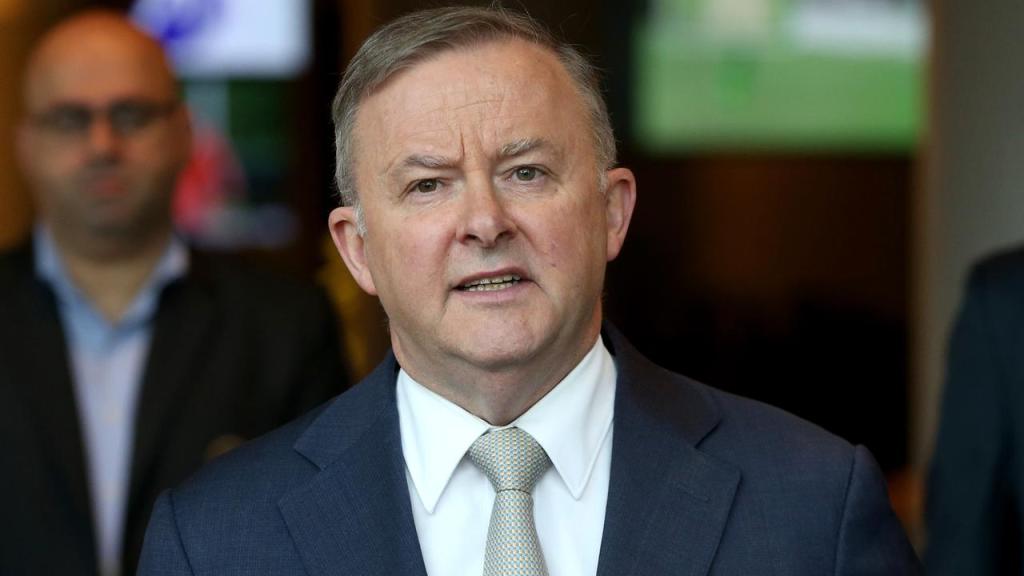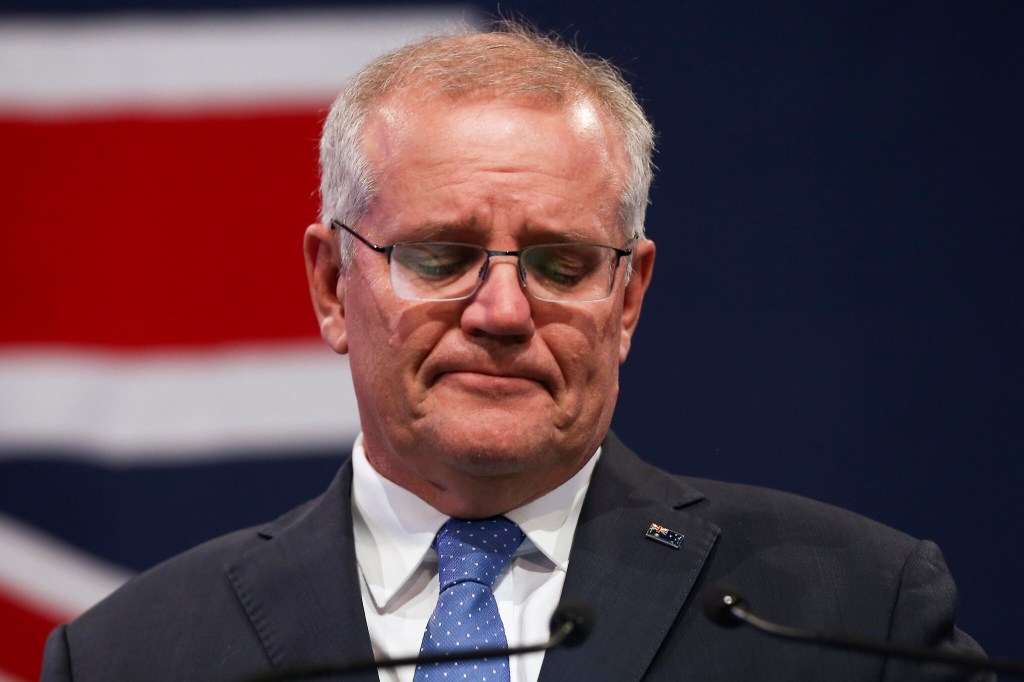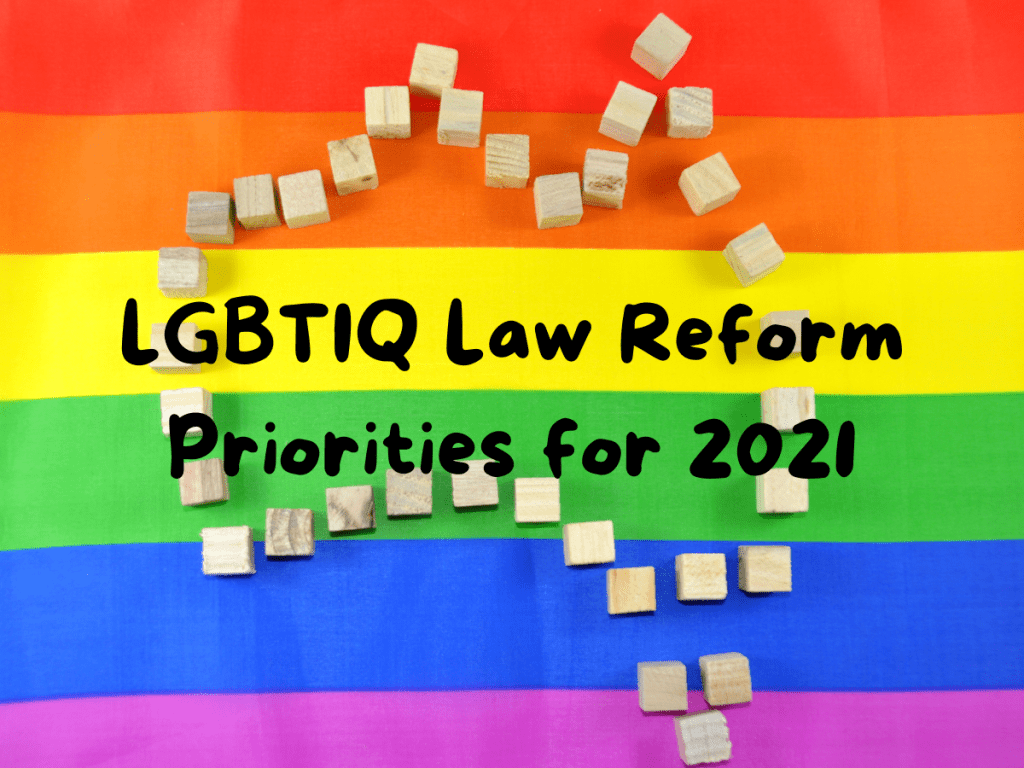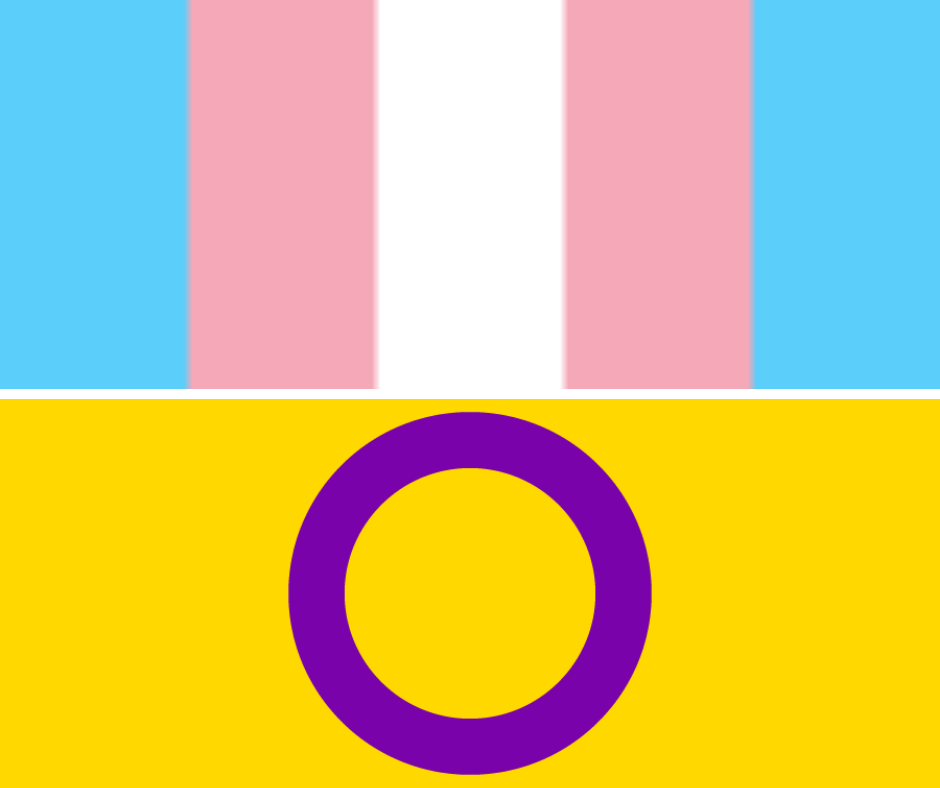Yes, I acknowledge it’s early April (and a lot has already happened this year, including Better Together in Adelaide, Sydney World Pride, TERF tours, neo-Nazi rallies, Christian Lives Matter riots and Mark Latham being, well, Mark Latham ie a homophobic and transphobic bigot).
But there’s still plenty of 2023 yet to come. I would therefore like to take this opportunity to set out what I think are, or should be, some of the law reform priorities for the lesbian, gay, bisexual, transgender, intersex and queer (LGBTIQ) community in Australia.
- Ending non-consenting surgeries and other harmful medical interventions on children born with variations of sex characteristics
The ongoing mistreatment of intersex kids, which includes egregious violations of the fundamental right to bodily autonomy, remains the worst human rights abuses against any part of the LGBTIQ community.
Thankfully, on this issue we have started 2023 with good news – on 22 March, the Australian Capital Territory Government introduced the Variation in Sex Characteristics (Restricted Medical Treatment) Bill 2023.
Once passed, the ACT will become the first jurisdiction in Australia to prohibit many of these non-consenting surgeries and other harmful medical interventions.
This achievement obviously reflects the leadership of ACT Chief Minister Andrew Barr, and his Government. But above all, it is a tribute to the relentless advocacy of Intersex Human Rights Australia, its tireless Executive Director Morgan Carpenter, and the intersex community and movement more broadly.
However, even after this historic legislation is implemented, there will remain seven other states and territories where children born with variations of sex characteristics are not protected.
October 2023 will mark ten years since the Final Report of the Senate Inquiry into ‘Involuntary or coerced sterilisation of intersex people in Australia’, which first recommended such surgeries should end. At the current rate – of one jurisdiction legislating every ten years – it will take until 2093 before all intersex children are protected around the country.
That is clearly not good enough. We need the Governments of New South Wales, Victoria, Queensland, Western Australia, South Australia, Tasmania and the Northern Territory to follow the lead of the ACT and urgently introduce their own Bills to outlaw these abhorrent practices.
2. Reforming trans birth certificate laws in NSW, Queensland and WA
It is appalling that, in 2023, trans and gender diverse people in NSW and Queensland are still required to undergo genital surgery in order to update identity documents, including birth certificates, to reflect their gender identity. WA is almost as bad – trans people there must demonstrate they have engaged in some form of physical treatment (which may include genital surgery, top surgery and/or hormone treatment), to do the same.
As with the issue of intersex surgeries, on trans birth certificates we start 2023 with good news – in two of these three jurisdictions anyway.
The Queensland Government has introduced the Births, Deaths and Marriages Registration Bill 2022 which, once passed, will remove all requirements for genital surgery, as well as other forms of medical treatment or approval from psychologists or counsellors. I urge the Queensland Parliament to pass this vital law as quickly as possible.
The WA Government meanwhile has publicly committed to abolish their Gender Recognition Board, and remove the serious barriers which confront trans and gender diverse people who simply want identity documents to accurately reflect their identity. Hopefully, the WA reform Bill can be developed, introduced and passed before the end of this year.
Which just leaves NSW – and, assuming both the above Bills do pass, will leave NSW as the only jurisdiction in Australia which mistreats its trans and gender diverse community in this way.
While March saw a change of Government in NSW, the new Minns Labor Government has not made specific commitments to change the laws here. Their response to a question on this topic in the LGBTIQ pre-election community survey, led by ACON, only noted ‘Labor will review these provisions in consultation with the community and trans and gender diverse communities’.
There is therefore a need for significant community pressure to be applied on the NSW Government to reform trans birth certificate laws as a matter of priority – and that pressure should come not just from the trans and gender diverse community, but also from cisgender allies who support trans human rights.
For more on this subject, see: Did You Know? Trans People in NSW and Queensland Still Require Surgery to Update Their Birth Certificates.
3. Banning conversion practices nation-wide
As at April 2023, only two Australian jurisdictions have prohibited sexual orientation and gender identity conversion practices generally: Victoria and the ACT.
A third, Queensland, has only done so in health settings, which means the places where conversion practices primarily occur – religious settings – are not covered.
Therefore, we need 6 of 8 Australian states and territories to either introduce, or upgrade, bans on conversion practices.
There are signs of movement in at least some of those jurisdictions:
- The Western Australian Government promised in December 2022 that it would introduce legislation banning conversion practices (although some of the language used at the time suggested it may follow the flawed Queensland approach, rather than the more comprehensive Victorian and ACT models), and
- The Tasmanian Government has also committed to implement the recommendations of a Tasmanian Law Reform Institute inquiry into conversion practices (although there have been some delays in the introduction of its legislation).
Meanwhile, the newly elected Labor Government in NSW sent mixed signals on conversion practices during the recent state election campaign. After first promising to ban conversion practices outright, the now-Premier Chris Minns later indicated it may not apply to religious settings, telling faith leaders that:
‘Taking offence at the teachings of a religious leader will not be banned, expressing a religious belief through sermon will not be banned, and an individual, with their own consent, seeking guidance through prayer will not be banned either.’
Advocates will need to spend considerable time explaining to Minns and his Cabinet colleagues why such a limited ban would be almost pointless in addressing the serious harms caused by conversion practices.
At this stage, I am unaware of current proposals in either South Australia or the Northern Territory to prohibit conversion practices – if you know more, please add the details in the comments section, below.
Let’s hope all six jurisdictions named (NSW, Queensland, WA, SA, Tasmania and the NT) take concrete steps this year to consign conversion practices to history (I was going to add ‘… where they belong’, but really, conversion practices have always been torture, and were never acceptable).
4. Modernising LGBTIQ anti-discrimination laws
2022 ended with two important developments in Australian LGBTIQ anti-discrimination legislation. The first saw the NT Parliament pass a major update to its Anti-Discrimination Act 1992, including covering non-binary and intersex people for the first time, and finally protecting LGBTQ teachers in religious schools against discrimination.
The second was the Commonwealth Government amending the Fair Work Act 2009 to explicitly include gender identity and intersex status as protected attributes for the purposes of adverse action and unlawful termination protections (after more than four years of campaigning, by myself and others, including Intersex Human Rights Australia and Just.Equal Australia).
Nevertheless, there remains a long way to go before the patchwork of our anti-discrimination laws finally ensure all LGBTIQ people, all around the country, can live our daily lives free from the threat of discrimination just because of who we are.
In (the remainder of) 2023, some of the main areas of activity will include:
Commonwealth
At Commonwealth level, the primary focus is obviously the Australian Law Reform Commission inquiry into religious exceptions allowing discrimination against LGBTQ students and teachers at religious schools, which is currently due to report on 21 April. Demanding that any subsequent Bill passed protects students and teachers, without allowing discrimination via alternative means, is essential.
But it is by no means sufficient. We also need to reform religious exceptions under the Sex Discrimination Act 1984more broadly, to ensure LGBTQ people accessing services, and LGBTQ workers, are not discriminated against by faith-based bodies across a range of public services, including health, housing, disability, welfare and other community services. As well as lobbying to include similar reforms to protect LGBTQ workers in the Fair Work Act(which also has incredibly broad religious exceptions), including via the Commonwealth Government’s Employment White Paper process.
New South Wales
Regular readers of this blog will be aware that the NSW Anti-Discrimination Act 1977 is the worst LGBTIQ anti-discrimination law in Australia. It fails to protect bisexual people. And non-binary people. And intersex people. It has the broadest exceptions allowing discrimination against LGBTQ students. And teachers. And the broadest religious exceptions generally. (For more background, see: What’s Wrong With the NSW Anti-Discrimination Act 1977?)
While the previous Government effectively ignored these problems, the new NSW Government has at least agreed to refer the Act to the NSW Law Reform Commission for comprehensive review. This review needs to take place as quickly as possible, as does any legislation which emerges from it, to finally drag the NSW Anti-Discrimination Act into the 21st century.
Queensland
Queensland’s Anti-Discrimination Act 1991 is already much better than NSW’s – and, by the end of 2023, it’s LGBTIQ anti-discrimination laws should move even further ahead (and approach those of Tasmania, Victoria and the ACT which are now the best in the country). That’s because the Bill updating trans birth certificate requirements, described earlier, also modernises the definition of gender identity, to protect non-binary people, and introduces a new protected attribute of sex characteristics.
Even more significantly, the Government has agreed in-principle to all of the recommendations of last year’s review of the Anti-Discrimination Act by the Queensland Human Rights Commission, and vowed to introduce a new Act by the end of this year. That Bill should finally remove the ‘Don’t Act, Don’t Tell’ regime which still applies to LGBTQ teachers in Queensland’s religious schools, and replace it with a system where teachers are judged on their ability, not their sexual orientation or gender identity.
Western Australia
Western Australia has much, much worse LGBTIQ anti-discrimination laws than Queensland – indeed, they are almost as bad as NSW’s – but they are on track to make a great leap forward this year. The WA Government has similarly accepted the recommendations of its own Law Reform Commission review of the Equal Opportunity Act 1984, including to ensure all trans and gender diverse people, as well as intersex people, are finally covered, and to modernise its approach to religious exceptions, including to protect LGBTQ students and teachers in religious schools. This legislation needs to be introduced and passed as a matter of priority – because LGBTIQ people in WA have waited for far too long already to enjoy effective anti-discrimination laws.
South Australia
The only Australian jurisdiction which does not already unequivocally protect LGBTQ students and teachers in religious schools against discrimination and which also does not have at least a process in place (or promised) that could lead to these exceptions being removed is South Australia. It’s time for the South Australian Government to take urgent steps to remedy this situation.
For comparative analysis of LGBTIQ anti-discrimination laws around the country, see: A Quick Guide to Australian LGBTI Anti-Discrimination Laws.
5. Protecting LGBTIQ people against vilification
The same NT laws which modernised their Anti-Discrimination Act 1992 also prohibited vilification there for the first time through the introduction of new section 20A, which provides:
‘A person must not do an act that (a) is reasonably likely, in all the circumstances, to offend, insult, humiliate or intimidate another person or a group of people; and (b) is done because of an attribute of the other person or of some or all of the people in the group.’
Despite this positive development, there are still four Australian jurisdictions which do not prohibit anti-LGBTIQ vilification in any way: the Commonwealth, Victoria, Western Australia and South Australia.
Of these, the WA Law Reform Commission review of the Equal Opportunity Act 1984 recommended that anti-LGBTIQ vilification should be prohibited, so hopefully this gap will be addressed this year.
While the Victorian Government has a long-standing commitment to introducing anti-LGBTIQ vilification laws, a commitment which seems to have been revived following the recent TERF and neo-Nazi rally on the steps of Victorian Parliament.
Indeed, the events of the past few months, including that TERF tour and neo-Nazi demonstration, as well as the Christian Lives Matter riot in Sydney and Mark Latham’s potentially vilifying, and definitely homophobic, tweets, have reiterated the need for vilification protections nation-wide, meaning the Commonwealth and South Australia Governments must address this menace too.
For further analysis of LGBTIQ vilification laws around Australia, see: Did You Know? Most Australian Jurisdictions Don’t Prohibit Anti-LGBTI Vilification.
6. Creating an LGBTIQA+ Commissioner at the Australian Human Rights Commission
The disturbing events of the past few months have confirmed one of the other major holes in Australia’s LGBTIQ rights framework – the absence of a dedicated LGBTIQA+ Human Rights Commissioner at the Australian Human Rights Commission (AHRC).
While there are existing Commissioners for Race, Sex, Disability, Age, Children, and Aboriginal and Torres Strait Islander Social Justice, there is no stand-alone, independent office-holder with primary responsibility for advocating on issues affecting the LGBTIQA+ community.
This gap meant there were many missed opportunities for commenting on, educating about and generally advancing the rights of LGBTIQA+ Australians when those same rights came under sustained attack.
In my view, it is simply not good enough to ask the Sex Discrimination Commissioner to take on additional responsibility for sexual orientation, gender identity and intersex human rights issues within the AHRC with whatever spare capacity they have left after addressing discrimination against women (hint: not much).
Indeed, as far as I can tell, there have been exactly zero media releases and/or news items on the Commission’s website about the awful attacks on our community over the past month (while the LGBTI section of the website has not been updated since October 2021).
Please note, this is not a criticism of the many good people who work at the Commission. It is simply an inevitable consequence of the severe structural weakness of a model where LGBTQA+ rights are only ever an add-on to someone else’s existing role.
It is beyond time for this structural weakness to be remedied, by the creation and appointment of an LGBTIQA+ Commissioner at the AHRC.
For more arguments about this topic, see: Where’s Our LGBTIQA+ Commissioner?
7. Supporting LGBTIQ refugees and people seeking asylum
This priority is both a law reform issue, and something where policies need to be improved and increased funding provided. Australia’s abhorrent refugee laws also obviously harm all people seeking asylum, rather than just LGBTIQ people. In that context, it should be stated that mandatory detention, and off-shore processing, must both be ended for all people seeking asylum.
However, there are some issues which do have a particular impact on LGBTIQ people seeking asylum, including that Australia’s off-shore processing scheme could still involve sending LGBTIQ refugees to Papua New Guinea, a country where male homosexuality remains criminalised (and from which all refugees should be repatriated to Australia).
Our processes for the intake of people seeking asylum are still not suitably tailored to deal with the needs of LGBTIQ people, and in my view we should be increasing the intake of LGBTIQ refugees from countries which are newly–criminalising same-gender sexual activity (including Uganda).
Finally, Australia needs to better support the LGBTIQ refugees and people seeking asylum who are in Australia, including by funding dedicated LGBTIQ refugee support services and the LGBTIQ refugee peak body, Forcibly Displaced People Network (FDPN).
8. Supporting the Voice to Parliament at the upcoming referendum
Even after writing just that heading, I can already hear some people respond: ‘But that isn’t an LGBTIQ issue.’
Except that all LGBTIQA+ people living in Australia are either First Nations LGBTIQA+ people, including brotherboys and sistergirls, or non-Indigenous LGBTIQA+ people living on Aboriginal land.
Meaning all of us have an interest in supporting reconciliation and, in my personal view, the best chance we have of making progress on that in 2023 is by supporting the generous invitation extended by First Nations people through the Uluru Statement from the Heart, which includes commitments to the three inter-related pillars of Voice, Treaty and Truth.
The first step in making that happen is by campaigning, and voting, for a constitutionally-enshrined Voice when it is the subject of a referendum later this year.
LGBTIQA+ Australians, as the community most-recently subjected to a national public vote on our human rights, also have an intimate understanding of what it is like to be at the centre of this type of debate, including consistent attacks from extreme-right politicians and the Murdoch press.
My sincere hope is that many non-Indigenous LGBTIQA+ Australians demonstrate solidarity with LGBTIQA+ First Nations people, and Indigenous people more broadly, by supporting the Voice as it too is attacked by the same people who attacked us. In other words, Vote Yes.
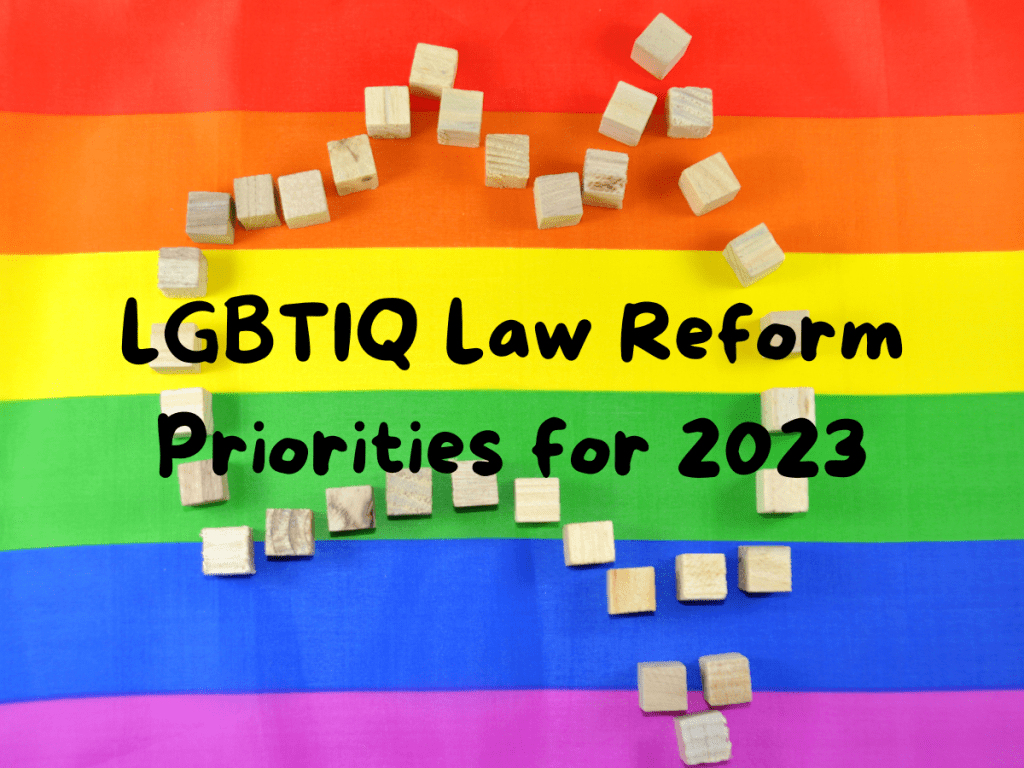
If you have enjoyed reading this article, please consider subscribing to receive future posts, via the right-hand scroll bar on the desktop version of this blog or near the bottom of the page on mobile. You can also follow me on twitter @alawriedejesus


